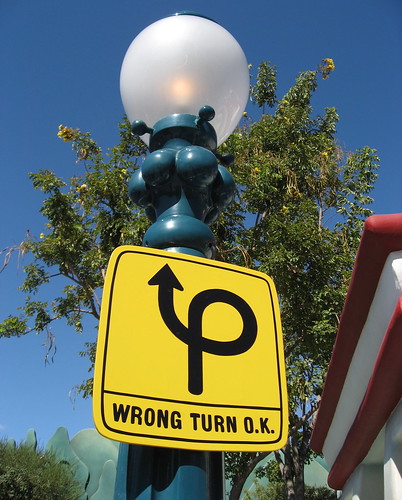
I recently had a friend of mine, who is taking her masters of Ed Physchology at the University of Regina, email me this picture and asked what my response to this would be. Well this is what conclusions I came to:
At first I looked at it and was thinking it was about young students just starting their school experience and how our bureaucratic, policy ridden education system has stripped them of their sense of wonder and ability to imagine.
Then I went back and read the saying at the top again and noticed the the word "She" was capitalized throughout the passage. This got me to think that maybe the "She" is really mother earth, or mother nature. Which paints a whole different picture. If we look at it from that perspective then this whole picture speaks to me on a more human sense.
To me this is describing how human beings see themselves as above or outside nature and all its elements. We tend to think we can "control" or predict nature and thus contain it or curb it to do what we want it to do when we want it to. It also speaks to our loss of inner-self and our inability to recognize our connectedness with everyone and everything in the universe. We strip away the feeling, intuition and instinct because we can't describe it, predict it or trust it. Thus, we label and categorize everyone and everything because to us it makes sense and reduces the unknown. Also, the serenity and calm that the figure in the tree is surprisingly glaring which emphasizes societies hectic pace and tiring sprint to the "finish line". With deadlines and the need to "succeed" we have no time in our life to just sit and exist. We are groomed to think we should be productive all the time. We should feel guilty because we should be doing something instead of "wasting time". The last line, "now She goes to school and She can only read words" is interesting. For me, I look at life as a learning/discovery experience and thus the world or our lifetime is in essence spent at school. But all we are learning is the words (ideas) that others or human kind deems worthy of passing on. There is no more self discovery, it is all taken on trust that those before us are correct. We have lost the ability to question and seek out our own answers or find new ones.
What do you think?
Monday, December 10, 2007
What have we created?
Posted by
Tyler Pokoyoway
at
12:50 PM
0
comments
![]()
![]()
Labels: Education, Nature, Philosophy
Sunday, December 9, 2007
What if...

What if we let students study what they wanted and we taught them the math, science, social, oral skills and reading skills that go along with it. Instead of forcing the students to learn what we want them to learn why don't we teach them what they want to learn? I recently read an article on student learning and how they retain knowledge. It spoke about how we don't store new information in our long-term memory until we ascribe meaning and relevance to our prior knowledge. Being in the discipline of mathematics I spend a good deal of my time going over concepts and ideas that were covered in the course or sometimes even the two previous courses. Students ability to recall prior learning is becoming a serious stumbling block to further learning built on prior knowledge.
My feeling is that if a student is allowed to select some topic or idea to study then the relevance and meaning will be more likely to occur since the students motivation to learn is intrinsically driven because of the self declared interest in the topic. For example, when a young boy is all of a sudden introduced to the land of dinosaurs they will read every little bit of information about them and can recall names and facts that I'm sure most paleontologists would have to look up. If we are there to guide them in their discovery of learning we can emphasize the math, science, English, etc. within their selected area of interest.
Now obviously their is going to be questions of how can we guarantee all students will be getting the same education? And, how can we assess and evaluate what they do know? First of all, I don't think we can say that even now every student is receiving the same education. The gaps in resources from one school to another and various curricula being taught throughout the country is preventing students from getting equal opportunities in our education system. Secondly, the way we have traditionally assessed and evaluates students is superficial and irrelevant in my humble opinion. So would we really be that far off than we are now if we just let them learn what they wanted to learn and guided them to the different avenues of leaning along the way? At least they might remember something.
I have recently come across some software that incorporates such an idea. Now I am not endorsing this companies software but I think it has huge potential to open students up to discovery and expose them to cross-curricular learning. I will give you an example. Let's say a student was interested in birds and wanted to make a bird house. During this process the student could learn about the birds that might inhabit their bird house (biology). Along with that they may look at environmental issues(which could lead to social issues) that may be affecting these certain species of birds(Science, Social Studies). Also, the student could learn about ratio and proportions of the house, slope of the roof, cost to make it (math). The student could also learn about different types of wood to use, which is strongest, easiest to build with (physics). The student could learn about supply and demand, marketing and budgeting if they wanted to produce for distribution (business/accounting/English). Maybe they could look up how different cultures view birds and what role they have in their society and how birds have been viewed in the past (History). This is just an example but you can see where it can lead.
This may not be the answer or maybe just the tip of the iceberg, but I think the way we approach leaning has to be changed to incorporate and encourage student inquiry and love of learning.
Saturday, December 1, 2007
Why do we give homework?
I have been pondering the aspect of homework the last little while. Particularly in mathematics. True some amount of repetition is required to obtain a skill but how many students actually care enough to do the work to improve their mathematical skills. The ones that don't need the practice are the ones that complete the assignments, and the ones that do need the practice rarely, if ever, have it done. Homework is done by those that benefit the least from it. Now I can try to entice them by saying there will be a homework check but even that is flimsy and superficial. I want them to do the work because it will help them learn and achieve success in the class and thus, encourage life-long learning. By attributing marks we are just encouraging students to be externaly motivated by marks which, in my humble opinion, is what holds students back from truly learning for the sake of learning. I think we have to look at the facts, students are a big part of the working class. Many have "part-time" jobs that take up to 30hrs a week of after school time. If you add in an after school sport or activity when is there time for homework? I think the idea that there has to be homework has been ingrained in our thinking of what school is. "What? You don't have homework?" Some may feel that if there is no homework being sent home then there must not be any teaching going on. In fact shouldn't we get through enough material in a one hour class period which would make practicing at home redundant? I know at times homework and letting students start their homework in class is an easy fix for poor planning and poor classroom management. I think we need to get away from homework and focus on assessing students. I would rather spend time on assessing then checking if the class did 1-30 odd from yesterday assignment.
I can feel that this is going to be an ongoing debate in my head I start my teaching career. If I come in with the notion that I don't want to give homework who will take me seriously? After all, I am just a new teacher...what do I know?
Posted by
Tyler Pokoyoway
at
11:33 PM
0
comments
![]()
![]()




